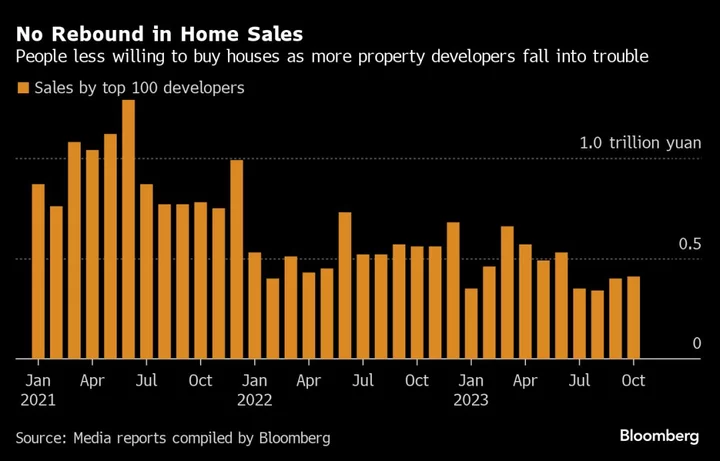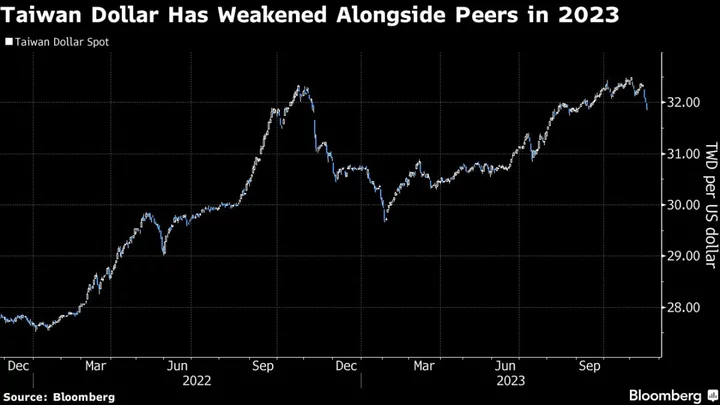China’s prolonged housing slump means the real-estate sector is driving less growth and contributing to the economic slowdown, according to new research which quantifies the extent of the damage.
Housing-related demand was an estimated 19.4% of final demand in the first nine months of this year, according to new estimates from Bloomberg Economics. That’s down from a recent peak of 24.2% in 2018, and it’s likely to continue dropping, they forecast.
“Shrinking real estate activity will hurt growth in the short term,” wrote Bloomberg Economists Chang Shu and Eric Zhu in the report, adding that the economy will become less reliant on property for growth as the sector’s share of GDP declines.
“The transition will also unleash resources for more productive purposes in emerging and promising industries such as electric-vehicle production, technological innovation and environmental protection,” they added.
Their estimates include both construction and real-estate services, plus all the spillover effects to other sectors such as resources and building materials or home appliances. Even with the drop in the value of the sector in GDP, it’s still high compared to many other countries, the report argues.
In the first nine months of this year, the economy expanded 5.2% — well below the pre-pandemic level of growth, with the years-long housing market slump contributing to that slowdown. The housing market has slumped over the past three years during the pandemic and as the government rolled out policies to limit how much debt property developers could take on, driving some of the biggest companies into default.
There’s no sign yet of a sustained uptick in sales. Residential property sales were down 3.2% in the first nine months of this year and investment into the sector dropped 9.1% over the same period.
Outstanding property loans through the end of September fell on a yearly basis for the first time on record, underlining the stress in the sector despite official assurances that the government is working to stabilize it.
The outstanding amount of loans to the property sector fell 100 billion yuan to just over 53 trillion yuan ($7.3 trillion) at the end of September compared with the level a year earlier, according to a statement from the People’s Bank of China last week.
Outstanding mortgages declined 490 billion yuan to 38.42 trillion yuan during the same period, the second straight quarter of year-on-year contractions.
(Adds more context about the housing sector’s contributions. A previous version of this story corrected a chart to show it refers to share of GDP.)









